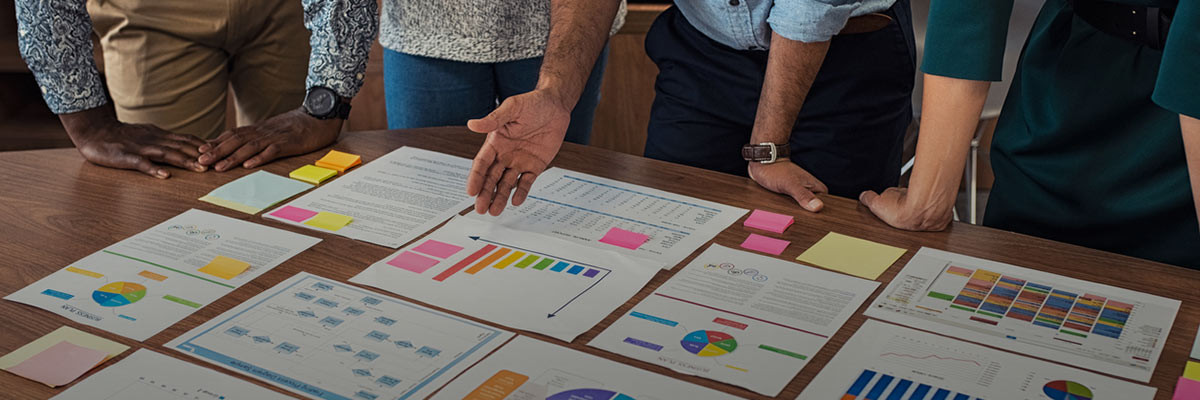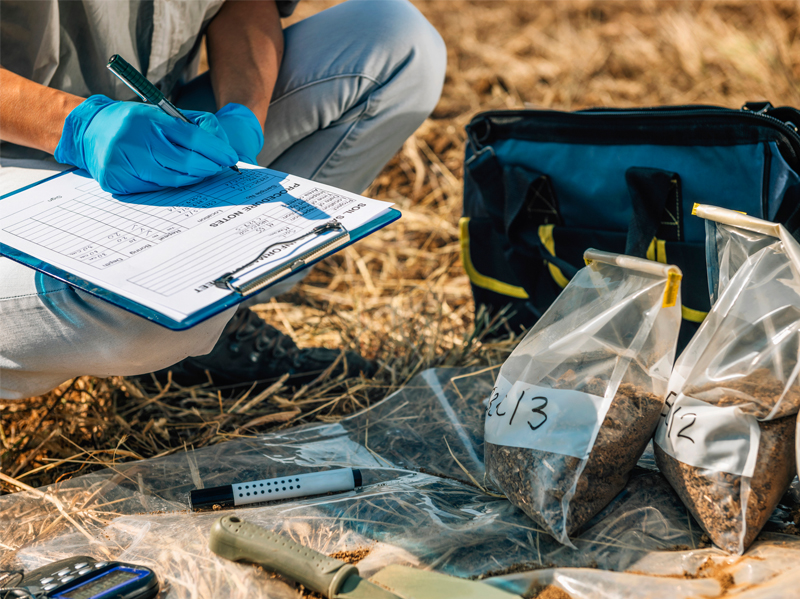
Authors
-

Associate Director, Transformation, BSR
-

Associate Director, Energy, Extractives, Transport, and Industrials, BSR
-

Senior Advisor, BSR
As COVID-19 continues to cause significant turbulence for business and now collides with the arrival of spring “peak reporting season,” companies are experiencing a moment of introspection and posing several questions to themselves: What business risks did our Form 10-K miss? Which nonfinancial data would have helped us better determine our exposure or resilience? How might our definition of what constitutes a "material issue" change? What COVID-19 related information do stakeholders need to judge the effectiveness of our response?
The world of sustainability reporting after COVID-19 will be very different than the world that preceded it. What should change?
How Companies Can Improve Sustainability Reporting Moving Forward
- Reexamine the materiality assessment and its integration into enterprise risk management. Materiality assessments are the building block of a good sustainability report, enabling companies to identify sustainability issues that are important to both their stakeholders and to business success. As society emerges from the current crisis, materiality assessments can be overhauled in two main ways: First, the clear financial impact of "nonfinancial" environmental, social, and governance (ESG) issues during COVID-19 reinforces the need to better integrate sustainability into Enterprise Risk Management (ERM). Second, companies can use materiality assessments to explore the relationship between a company’s impacts on a sustainability issue and the impact of that issue on the business. Rather than seeing, say, supplier diversity as a “nice to have” that might fall in the middle of the pack relative to other sustainability topics, how does the issue interact with the core business or change a company’s risk exposure?
- Determine what information stakeholders need to judge the effectiveness of company response to COVID-19. Stakeholders will eventually look back on how companies responded during the COVID-19 pandemic—and this will require new disclosures to help readers understand how well a company responded. Stakeholders will look for new information on important sustainability issues and insights into company decision-making processes, so companies would be well served by consulting with stakeholders to find out what information they may seek in the future. For example, stakeholders may wish to understand how a company considered the needs of its most vulnerable employees or local communities, whether it undertook human rights due diligence of COVID-related decisions, and how it balanced short-term needs with long-term resilience.
- Significantly increase connectivity between sustainability and financial reports. A sustainability report provides an annual account of how a company responds to issues of material significance to stakeholders and serves as a reference point where companies can provide a formal description of their strategy, approach, and performance. COVID-19 has revealed just how impactful nonfinancial ESG issues can be on the financial performance of a business. Now that this connection has been made so evident, companies should use this as the impetus to more closely link nonfinancial and financial reporting. This may imply incorporating more Sustainability Accounting Standards Board (SASB) metrics into financial reporting or increasing cross-references between sustainability and financial reports. This is especially significant in the context of the EU Non-Financial Reporting Directive, which presents an opportunity to further align complementary approaches to the disclosure of sustainability information.
- Take inspiration from climate reporting to disclose on company resilience. COVID-19 has increased attention on risk factors, including public health threats, supply chain disruptions, and operational flexibility. To improve reporting on resilience, companies can draw inspiration from the Task Force on Climate-related Financial Disclosure (TCFD). The TCFD recommendations provide a compelling framework for companies to report their climate-related risks and strategies to mitigate them, but the COVID-19 pandemic clearly illustrates that systemic nonfinancial risks extend beyond climate change and span a wide range of social and other sustainability issues. Given the significant traction gained by the TCFD’s four-pillar framework (governance, strategy, risk, metrics and targets), we believe that a similar approach can be deployed across social and sustainability issues in order to report and manage such risks. This can include the use of scenario analysis to set out a range of plausible futures and describe how the company may respond to each, with the goal of improving resilience to the sustainability challenges society will likely face in the years to come.
- Collaborate with industry peers to ensure comparable COVID-19 disclosures. Stakeholders today benefit from companies using the Global Reporting Initiative (GRI) and SASB standards and TCFD recommendations. These frameworks enable companies to provide reasonably comparable and useful information. However, no such template exists to compare how companies have responded to COVID-19. Rather than every company creating their own report in their own way, companies can look for opportunities to work with industry peers to create consistent COVID-19 reporting taxonomies, disclosures, and metrics so that investors, stakeholders, and policy makers can make easier comparisons.
Though COVID-19 has caused unprecedented disruption for many companies, we believe that more integrated, comparable, and standardized reporting will be needed to “build back better.” Such reporting can both meet the new information needs brought to light by COVID-19 and strengthen companies’ decision-making, risk management processes, and overall performance in the long term.
As we recover, the question of whether or not the reporting field truly moves forward hinges on the extent to which financial and sustainability reporting converges and on whether reporting standards and nascent regulation accelerate this convergence.
Topics
Collaborative Initiatives
Let’s talk about how BSR can help you to transform your business and achieve your sustainability goals.







